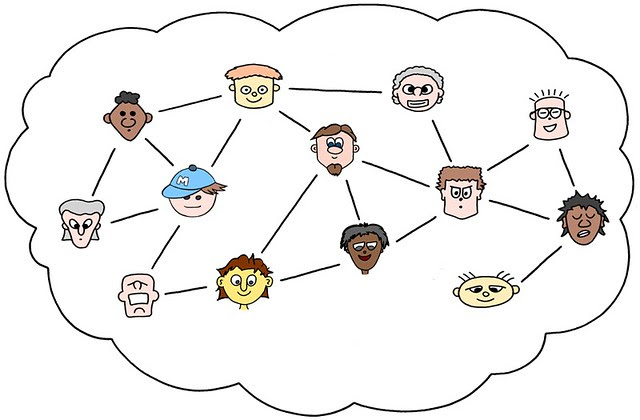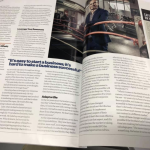
The System in the Classroom – an observation by our chair
CN&CO chair, Colleen Magner, does a lot of conversation work in many fields as part of her role as MD of Reos Partners in South Africa. She recently spoke on Systems Thinking and Social Change at the GIBS Social Entrepreneurship Programme in Johannesburg and shared her thoughts in a newsletter, which is reproduced below.
By Colleen Magner
For the past 15 years, I have offered an annual course on Systems Thinking and Social Change at the GIBS Social Entrepreneurship Programme in Johannesburg.
It’s an opportunity to share and discuss various approaches to addressing a range of social challenges. Most of the 70-plus class of students work in South Africa, across sectors and types of organisations. It’s a unique opportunity to have ”the system in the room” – a classroom of leaders, all attending with the intention to increase their impact in addressing the country’s most pressing social issues.
One of the re-occurring themes of discussion is that many of these leaders view their role to be pivotal to the future of their organisation and its work. The term and framing of the course implies that ”social entrepreneurship” is an individual act of leadership. The result of this framing is that these leaders experience a range of challenges that often get in the way of their work, including feeling burdened, burnt out, ineffective, and overwhelmed by the size of the problem and their resources to address it.
For some, the introduction of systems thinking to their problem-solving toolkit helps them to understand that the problem cannot be addressed by themselves alone, or only by acts of individual leadership. And this realisation offers the group a sense of relief and possibility. If we imagined the context in which we worked as a system, and took the time to understand that system’s behaviour – could we intervene, with others, in places we couldn’t have imagined from our current vantage point?
Every year, the ideas, insights and questions that emerge from introducing a better systems view and ways to respond, surprise me. Over these years, I’ve been working with groups who are trying to address social issues more effectively, and systems thinking is one way to potentially improve this impact. Yet, introducing these systems approaches to challenges is mostly received as new and startling – and left me feeling that this thinking hasn’t penetrated the social discourse yet. This emerging nature of problem solving is hard for leaders, who have the pressures of log-frame reporting from funders, and need for certainty of impact and planning from their respective constituencies, including governance boards.
I come to this work with increasing empathy of the challenge to balance these approaches: clear-thinking execution and scaling of important innovations, with the constantly changing system around us, to which we need to adapt and respond. The real skill is to understand when conditions exist to take a systemic, collaborative and emergent approach.
If you would like to subscribe to the Reos Partners newsletter, click here.
To read this newsletter online, click here.







Maple Lukin
Hi cnandco.com administrator, Thanks for the informative post!